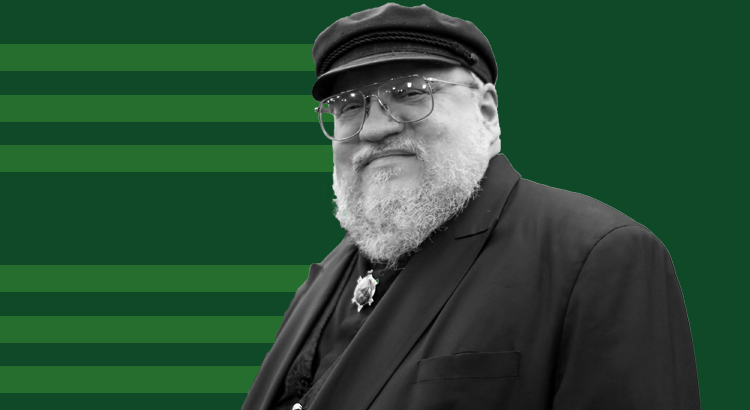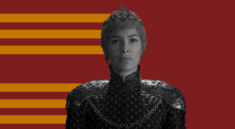Season 7 of Game of Thrones has rolled its end credits. There are countless reviews, commentary, and discussion around the show rendering most of what I could say at this point repetitive. If you watched it you know what happened. If you haven’t, chances are you wouldn’t read a spoiler filled review. On top of those two obvious things, the review of season 7 is probably more useful before the premier of the final season as a refresher to those who do not wish to binge away their life on episodes already seen to recover all the plot and context that was lost over the season break.
Instead I would like to ask a very different question of Game of Thrones. What is the point? More specifically, what is the show trying to tell us, if anything at all? To most the show is simply drama filled entertainment, meant only to thrill, intrigue, and pass away your Sunday night. While I believe HBO actively tries to put out content that has more depth for those who want to go looking, the commercialization and success of the show may have made that difficult to accomplish for the show’s producers and writers. The question becomes more complicated as the source material and the show have diverged in ways that make the show its own creation in many respects. While George R.R. Martin has been no doubt involved in the past two seasons, there are no books to provide context for these seasons and noticeably, we as an audience have been delightfully rewarded with the plot points that we generally wanted. Slowly but surely our favorite characters have stopped dying (or even come back to life) and the characters we hated the most seem to be meeting their ends (save for Cersei who is the necessary antagonist to provide more complicated drama then simply people verse White Walkers).
In the first four seasons of the show, there was little justice to be had in the land of Westeros. The plot built characters up to tear them down. Ned Stark held his head high in the pursuit of what is right, only to have that head removed at the end of season 1. Robb Stark picked up the banner, only to be brutally murdered with his wife, mother, and unborn child. My boi Oberyn Martell was built up to finally take his revenge on The Mountain, only to have his head smashed into an Oreo. The list of deaths goes on as fans well know. What was the meaning behind this? Is it simply that anyone can die at any time? Is it simply to shock or keep the reader off balance? Is this perhaps the anti-thesis of the Disney fairy tale?
In the beginning, it was clear to readers or watchers that there were forces for good and there were forces of evil. There were characters we liked and there were characters we depsised (mmhmmm Joffrey). But this was complicated by the sheer number of factions, characters, and motives when the show had a wide and varied range of plot threads. Sure, the Starks were good and we could see from the outset the Lannisters were bad. But even within these groups there were outliers. Tyrion seemed like a rational underdog willing to think for himself. Jamie seems to undergo a change of heart upon losing his hand. Humbled, we as an audience came to sympathize and even like him at points in the hopes that maybe he could bring reason and empathy to the Lannister family. In a similar grey area is Theon Greyjoy who chose his true-born family over his current one by betraying the Starks, transforming into the show’s heel, only to be restored into somewhat good graces at the torturous hands of Ramsey Bolton, only to disappoint viewers again by refusing to take on his uncle and save his sister, only to then rise in the very last episode on a quest to save her. It is the characters like Theon who continually undergo change and misfortune that interest me the most. The characters that wonder in the realm of moral ambiguity, who demonstrate the rational and human emotion that we would all be subject to in the circumstances, however fantastical, that these characters are subjected to. And perhaps it is within them we can find some hints at meaning.
Take Theon as an example of a character who exemplifies more human qualities than most[i]. He lives with fear and his fear will at times govern his actions. His fear is understandable, as the last time he acted without fear, he became the pet of a deranged lunatic. He lacks the courage of a Robb Stark and up until the last episode of season 7, he lacked the moral and ethical need to pursue justice, even if it was against his own interest like Ned Stark. But the difference between him and both of these characters is that he is still alive. Perhaps that is not the real meaning of the narrative. Perhaps there is no intended message that is being communicated beneath the surface of the action. But if there is one, that dichotomy may hint at the lessons of realism that still govern this fantasy world.
The other differentiation that makes Theon’s character intriguing is that he is one of the few characters left whose future seems uncertain. The most likely future is that he manages to save his sister and redeem himself. But as far as the threads of possibilities, he is still not a major character and we could envision an end where the dies in his pursuit of Yara; perhaps sacrificing himself for her escape or dying and taking Euron with him. Perhaps he will attempt to reason with Euron and bring him back into the fold (though still the unlikeliest of possibilities). Theon is also one of the few characters splitting off from the main action. Over the past two seasons we have seen the compression of plot points and an escalation in the pace of action. The most notable example is how Cersei managed to kill off numerous ongoing plots in one blow by destroying the Great Scept. As for the rest of the characters, their collision course with the White Walkers seems certain. Cersei’s involvement is clearly in question still, but aside from her, Theon is now one of the last few question marks of the show.
While it is hard to draw conclusions as the final season has obviously yet to air, it appears that the show has abandoned the uncertainty and callousness of its roots for a more traditional narrative. The show did an excellent job of honoring its source material through the first four seasons[ii]. But the producers had to make a choice at season six once the books could provide no further guidance for the plot and tone. The route that was taken was to provide the audience with what they wanted. Since the divergence of the books and show, we have seen the remaining Starks reunited in their home in Winterfell. We have seen Petyr Baelish unmasked and brought to justice for orchestrating the war of the seven kingdoms. We have seen Daenarys and Jon Snow join forces and not only that but he is the heir to the entire kingdom. Some of these developments were unavoidable and may still be apart of the narrative that Martin envisions. But the killing of Baelish certainly wasn’t truly necessary as he was still the thorn in the side of the Starks that people loved to distrust. The fact that Arya and Sansa both survived was not entirely necessary either. In season six on the other hand, we saw the demise of the High Sparrow and the characters that were nixed were simply not crucial to the development of the plot. Tommen, Margery, the majority of House Tyrell were not characters that we were emotionally invested in, either with love or hate. So while the show is still killing characters, it would seem that there is a bit more selectiveness now then there was at the show’s opening stages.
It is hard to argue with the results as HBO’s last episode continued to smash the ratings records set in previous seasons. People still love and enjoy the show, myself included. Despite the race towards the conclusion, the writers have managed to keep finding ways to be unpredictable, though not in the same ways that originally built the show’s reputation and fan base.
As far as the show, the motivations behind the choices and narrative seem to indicate that it delves no deeper than entertainment. Trying to provide a Ulysses level reading to modern TV is all but in a few cases folly. Judgement and careful analysis should still depend upon the decisions made in the show’s penultimate season. It should also be said that, depending on the number of differences between the conclusion of the books and the show, that both need to be evaluated separately. Though I was debating about whether to continue reading the books, it may be worth it to see the decisions Martin makes with his characters and the ending which Martin described as being “bittersweet”. The books, while they have been met with commercial success, are not beholden to the same market forces that drive the HBO show. Martin seems to care very little about the happiness of the fan, book sales, or deadlines for that matter. Separate from the incentives that govern subscription based television, the books should have more space to weave a narrative subject to more open interpretation.
[i] If we need further proof of this, imagine Jon Snow. Jon Snow is brave and courageous to the point of irrationality. While we cheer for Jon Snow, do we as viewers truly identify with his character? He has died and been brought back to life. He stupidly charged an entire army by himself, then foolheartedly took a handful of people on a suicide mission that inadvertently brought upon the army of the dead and got nothing in return. Jon Snow is awesome, but he is one of the few characters that gets to ignore the general rules of Game of Thrones, which is if you are brave and stupid, you die. And so while Jon Snow is the hero, his character is less intriguing now than when he was just a bastard trying to make his way through the Night’s Watch.
[ii] I would say through the first five seasons but season five wallered (southern term) along until the point when Jon Snow was killed. Really, that’s pretty much what happened in season five.




